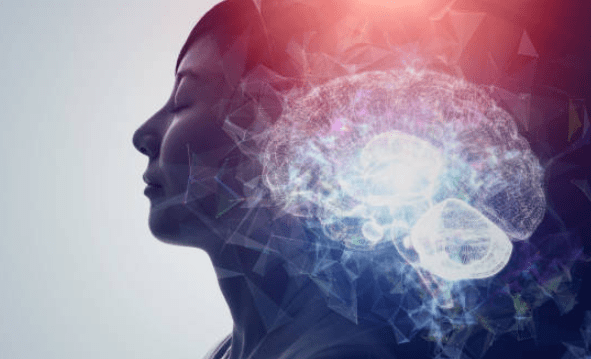How Meditation Helps ADHD
Find out how meditation can help you if you have ADHD.

Selfpause Affirmation App
Download the app to get 1,000’s of affirmation meditations and everything you need to write, record and listen to your own.
If you are suffering from ADHD, you might want to consider learning how meditation can help. It has been shown to reduce anxiety, increase focus, and reduce pain. Moreover, it can also help with focus, pain management, and mood. In addition, it can even help you manage stress. Read on to learn more about how meditation can benefit you.
Meditation Reduces Anxiety

If you suffer from anxiety, meditation can be a great way to reduce the symptoms. It helps you relax and can help you stay focused. You can use imagery to guide you back to the present moment. When you notice that your mind is wandering, try visualizing a feather or balloon descending. After a few moments of this meditation, return to your breath to bring your attention back to your breathing. Meditation can help you cope with anxiety because it changes the way the brain works.
In addition to helping you calm down, meditation can also help you develop mindfulness. This is a great way to develop compassion for yourself and others. It will also help you improve your relationships. You might even be able to get some much-needed rest. You can start by doing a 10-minute guided meditation.
The first step in practicing meditation is to find a technique you enjoy. Many people find it helps them control negative thoughts and stop worrying about the future. But if you are unsure of how to meditate, you can always find a teacher to help you. It may even be best if you work with a mental health care provider or a mental health expert. For best results, you should try to make these exercises a part of your daily routine. You should also practice breathing exercises every day.
One study found that meditation reduced anxiety by 39%. The researchers at Wake Forest Baptist Medical Center studied the brain activity of volunteers undergoing meditation. They found that when their anxiety levels decreased, brain activity changed in the anterior cingulate cortex and ventromedial prefrontal cortex.
Meditation Improves Focus

A recent study suggests that regular meditation can improve the brain’s ability to focus. The results showed that people who practiced meditation for at least one year displayed a marked improvement in their ability to maintain mental focus. These results are particularly encouraging in an age where attention spans are shortening. Meditation helps to change brain patterns, and this could be a key factor in improved mental focus.
Meditation increases the amount of tissue in the anterior cingulate cortex, which plays an important role in controlling impulses and maintaining attention. It also enhances connections between brain areas involved in attention control and body awareness. Furthermore, long-term meditators show a reduction in activity in the right amygdala, which is connected with processing negative emotions.
Many adults experience difficulty concentrating. The benefits of meditation include increased attention and improved memory. A recent study showed that meditation training improved the verbal reasoning portion of the GRE by 16 percentile points. However, more research is needed to confirm the positive effects of meditation on students. For now, a focus-enhancing meditation practice is a useful way to increase a student’s GPA.
Meditation Improves Mood

Various studies have shown that meditation can improve mood. People who meditate tend to have better levels of dopamine, a neurotransmitter that affects mood, emotions, and sleep. It can also help regulate the sleep-wake cycle. Meditation can enhance your mood and reduce negative feelings. It can help you cope with daily challenges.
Meditation improves mood by improving concentration and cognition. It also improves your self-image, which helps you cope with stressful situations. Studies have also shown that meditation helps lower levels of hormones that can contribute to depression and anxiety. It is also a proven way to increase the number of feel-good hormones, which are known to boost mood and reduce levels of anxiety-causing hormones. Furthermore, people who practice meditation regularly tend to produce more serotonin, a chemical that is associated with mood regulation and is a sign of health and happiness.
Meditation Reduces Pain

A new study shows that meditation reduces pain in a dramatic way. According to researchers at Wake Forest Baptist University, meditation increases the activity of brain areas that shape the way people perceive pain. These areas include the orbit frontal cortex and the anterior cingulate cortex. Researchers said the increased activity is due to changes in the way the brain processes pain.
In the first study, participants in a mindfulness meditation program reported reduced pain. They also reported that their pain perception was less intense and that they were able to handle pain better. Mindfulness meditation may also help a person cope with chronic pain because it decreases cognitive control and increases sensory processing. However, it remains to be seen if it will be enough to eliminate pain in the long run.
The benefits of meditation for pain management are many, but the key is finding the right method for you. For example, a free guided meditation can help you focus more effectively, and if you’re struggling to find the time, you can use a recording of a meditation session. Many meditation techniques can help reduce pain and reduce anxiety. Try a few out to see which ones work for you.
The study participants in the mindfulness meditation study reported reduced pain than their counterparts in a control group. This suggests that meditation helps the participants to down-regulate pain perception, which is an important aspect of placebo analgesia. Additionally, mindfulness meditation reduces pain-related neural activity. This suggests that it could be a very effective therapy for chronic pain.
For chronic pain, you should practice mindfulness meditation and focus on the present moment. This will enable you to enter a meditative state faster. You can also try breathing through the pain to distract yourself from the painful sensation. Meditation can also help you cope with chronic pain because it increases the release of endorphins, which are the body’s natural painkillers.
Meditation Regulates Hormones

The practice of meditation, or the relaxation response, decreases the levels of the stress hormone epinephrine in the body. This decrease reflects a systemic change in autonomic balance. In addition, meditation lowers the production of norepinephrine, which is a key component of the endocrine system. It also reduces the production of ACTH, a hormone that stimulates the adrenal cortex to produce cortisol.
Meditation also affects the levels of growth hormone, which is responsible for cell repair and renewal. As we grow older, our bodies produce less growth hormone. Meditation in the Delta wave state allows the body to produce more growth hormones and therefore heal itself faster. This has a host of health benefits, including improved skin and stronger bones.
Our Top FAQ's
ADHD, or attention deficit hyperactivity disorder, is a neurodevelopmental disorder that affects an individual’s ability to regulate their attention, impulsive behaviors, and hyperactivity. It can have a significant impact on an individual’s daily life, including their ability to focus and complete tasks, their relationships, and their overall functioning.
Common symptoms of ADHD include difficulty paying attention, impulsivity, and hyperactivity. An individual with ADHD may have trouble focusing on tasks, may act without thinking, and may have difficulty sitting still. They may also be easily distracted and have difficulty following instructions.
Meditation has been shown to help individuals with ADHD manage their symptoms by improving their ability to focus and pay attention. Through regular practice, meditation can help individuals with ADHD develop their ability to control their attention and reduce their impulsivity and hyperactivity.
There are many different types of meditation, and some may be more effective for individuals with ADHD than others. Mindfulness meditation, which focuses on bringing the mind’s attention to the present moment, has been shown to be particularly effective for managing ADHD symptoms. Other types of meditation that may be helpful for individuals with ADHD include breathing meditation and body scan meditation.
While meditation can be a helpful tool for managing ADHD symptoms, it is not a substitute for other treatments such as medication and therapy. It is best to use meditation as part of a comprehensive treatment plan that includes other interventions tailored to the individual’s specific needs.
